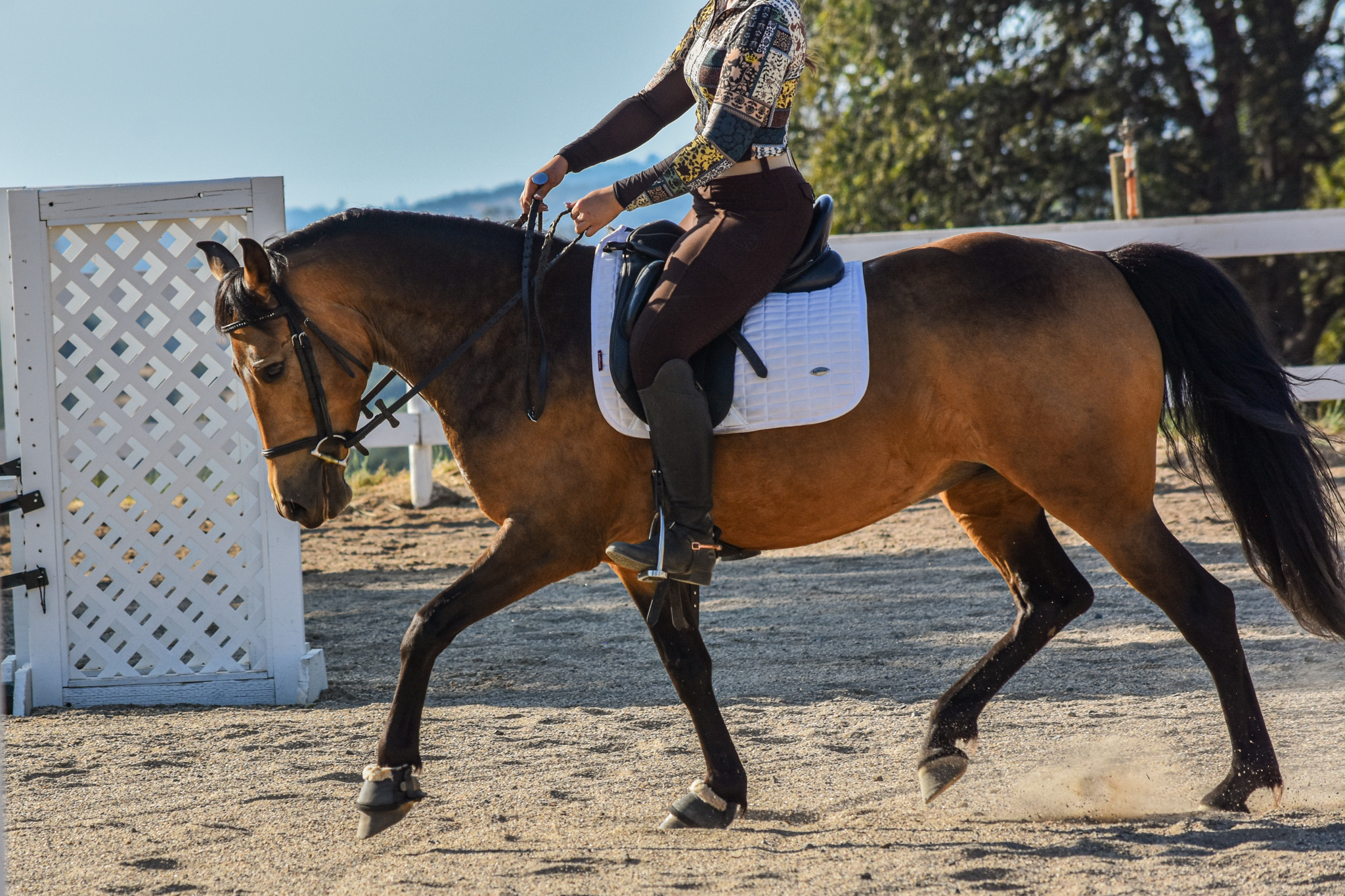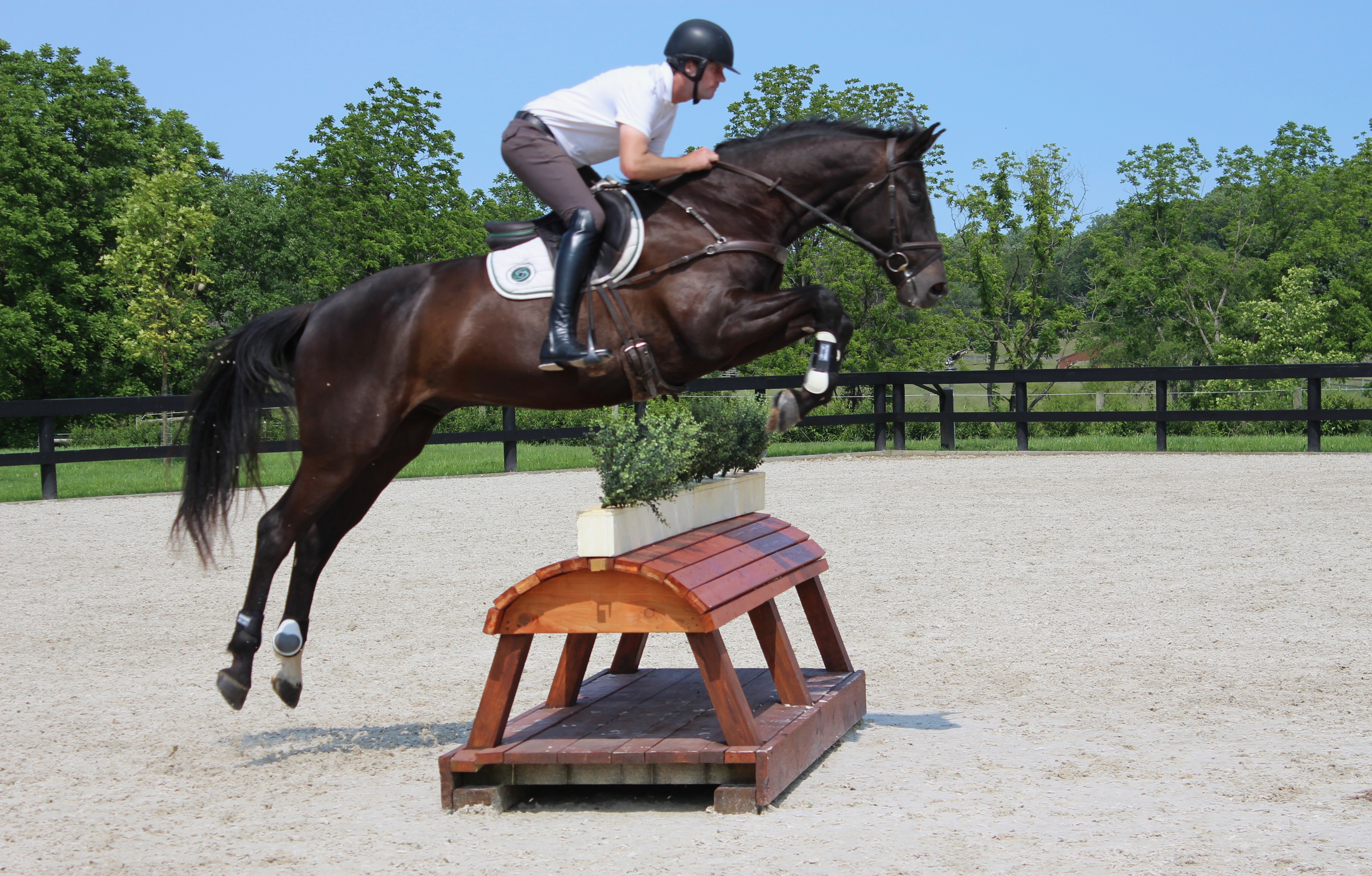
Kevin McNab (AUS) and Faro Imp (OL) lead the way after dressage in the CCI4*-S – Connollys RED MILLS. Photo by Bit-Media.
Leading Australian rider Kevin McNab opened and closed the dressage phase for the Connolly’s RED MILLS CCI4*-S at Millstreet International Horse Trials, Co Cork, Ireland, with two impressive performances. He is now in first and third places, on Sofia Moltke’s Faro Imp (score 28.8) and CCI4* first-timer Wilfred Lancer (29.7), the two horses split by Sweden’s Sofia Sjoborg riding Govalent for a score of 29.2.
Faro Imp is an Oldenburger by F One USA out of a Master Imp mare; the nine-year-old was recently second in the Strzegom CCI4*-L in Poland and is bound for the Aachen CCI4*-S in Germany. Kevin, who also heads the leaderboard for the Donal Hickey Motors CCI2*-L with Hugo Junker and Alexa Gartenberg’s seven-year-old grey mare Cassie, has been visiting the premier Irish horse trials since its inception a decade ago.
“We always try to have horses to come here because we know we will get good surfaces and Mike Etherington-Smith’s cross country courses are always educational and a nice challenge,” he explained.
Patrick Whelan is best of the Irish in seventh place on Altitu in the class of 30, while Irish-based Daniel Alderson is in contention for the newly announced Connolly’s RED MILLS EI120 National Championship title which will be awarded to the highest placed Eventing Ireland member in this class.
British Olympian Laura Collett is in first place in the Goresbridge Horse Sales CCI3*-L with a mark of 27.1 on Sheena Pilkington’s nine-year-old Dutch-bred C-Let’s Dance van de Beemd, already a winner of a CCI3*-L on Irish soil, at Lisgarvan last year.
In an all-British top four, Laura is followed by Louise Bradley (Ardeo Mandela), Caroline Harris (Lester Ckv) and Gemma Stevens (Cooley Park Muze). Badminton hero Austin O’ Connor is best of the Irish in fifth place on Diamond Mistress.
British-based US rider Hallie Coon’s brand new partnership with Bruce Fraser and Keith Norman’s Headleys Quixote, has got off to a flying start as they are in the lead in the Foran Equine CCI3*-S, which is only their second competition together. The British-bred 10-year-old by Flyinge Quite Easy 958 has been produced by Hallie’s friend, Zimbabwean rider Julia Norman.
“He’s spectacular and I think he will be something special,” said Hallie, who is another regular Millstreet visitor. “The cross country here is such a course for horses – you always come away with a better horse as it is such an education. It should suit mine as he is a big, galloping, jumping type, but it is very much a fact-finding mission.”
Carla Williamson and Ann Magee’s Karolita O are in pole position in the Carr & Day & Martin CCI1*-Intro on 23.9; Kitty Cullen heads the Ponies, sponsored by Connolly’s Red Mills, on Jane Hancock’s Coppenagh Spring Sparrow (28.9); and the experienced Sam Watson, winner of the CCI4*-L last year, has the exciting seven-year-old Irish Sport Horse Ballybolger Goldman, owned by Rosemary Ponsonby, Lesley Crampton and his wife Sparkles, in first place on 31.1 penalties in the Coral Cove Championship for young horses.
Tomorrow’s busy cross country day starts at 8am with the CCI2*-L while the show jumping action kicks off with the CCI4*S at 9am. Both phases are available to watch on www.millstreet.horse/eventing where start lists and results can also be found.
Millstreet International CCI4*-L/S (Ireland): [Website] [Entries] [Timetable] [Live Stream]



































